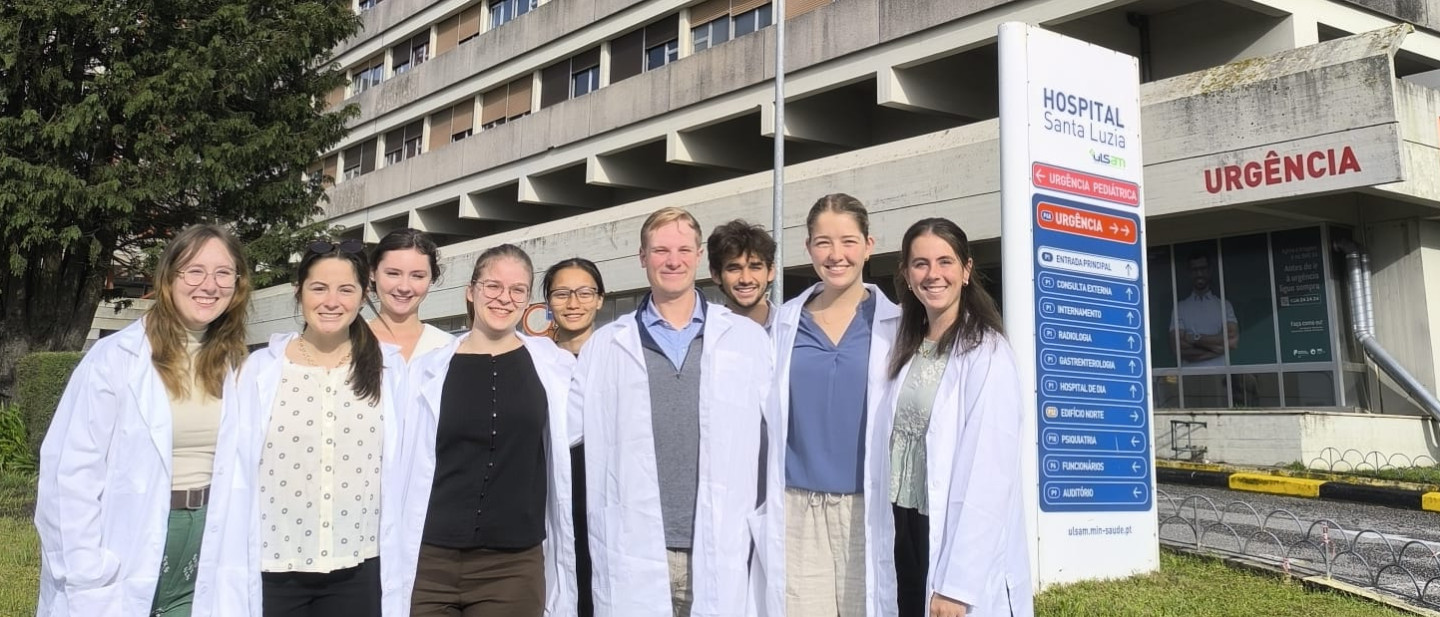Sewanee is full of extraordinary people with fascinating stories. Here they share those stories–in their own words.
Purpose and Perspective in Portugal
as told to Emma Steadman, C’26
Based on a conversation with Payton Burch, C’27, Molecular biology and genetics major, psychology minor, pre-nursing student
Looking back on my time in Portugal for the Healthcare Across Cultures program, the moment that sticks with me the most is how fast everything started. One minute, we’re getting a brief tour of the hospital; five minutes later, I’m in scrubs, standing in the corner of the OR, watching a hysterectomy. No time to ease in—just go. And honestly? I loved that.
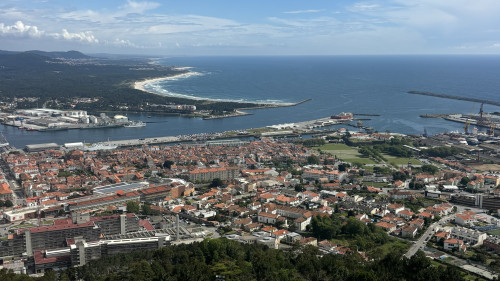 There were two different hospitals where students were placed, and I was assigned to the Hospital de Santa Luzia in Viana do Castelo—a surprisingly large hospital perched on a hill overlooking the city. My first week, I shadowed anesthesiology, which was perfect since I hope to become a certified registered nurse anesthetist (CRNA). I spent each morning in the same operating room for hours, observing a range of procedures. Most were gynecological or orthopedic surgeries: hysterectomies, a transobturator tape procedure, an anterior and posterior colporrhaphy, a sacrocervicopexy, wrist fracture repairs, and even operations to replace screws and plates in a femur.
There were two different hospitals where students were placed, and I was assigned to the Hospital de Santa Luzia in Viana do Castelo—a surprisingly large hospital perched on a hill overlooking the city. My first week, I shadowed anesthesiology, which was perfect since I hope to become a certified registered nurse anesthetist (CRNA). I spent each morning in the same operating room for hours, observing a range of procedures. Most were gynecological or orthopedic surgeries: hysterectomies, a transobturator tape procedure, an anterior and posterior colporrhaphy, a sacrocervicopexy, wrist fracture repairs, and even operations to replace screws and plates in a femur.
Week two, I shadowed gastroenterology, and the pacing was completely different. On any given day, I saw around eight to 10 procedures, mostly colonoscopies and endoscopies, before lunch. But beyond the clinical differences, what truly challenged me—and ultimately shaped me—was navigating all of this in a language I didn’t speak.
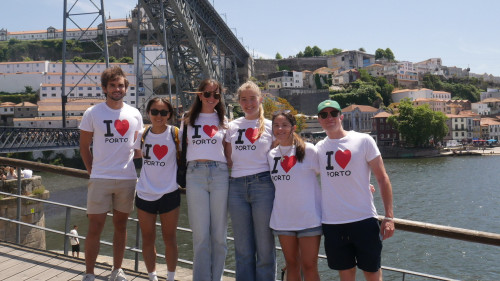 Because of the language barrier, when something unexpected happened, I had no idea what was going on. Watching the doctors communicate with one another and the patients with no understanding of Portuguese taught me to read the room. Body language became my guide to knowing when someone was comfortable or uncomfortable. I realized how important nonverbal communication is in medicine, especially when a patient doesn’t know how to ask the right questions or is too nervous to ask anything at all.
Because of the language barrier, when something unexpected happened, I had no idea what was going on. Watching the doctors communicate with one another and the patients with no understanding of Portuguese taught me to read the room. Body language became my guide to knowing when someone was comfortable or uncomfortable. I realized how important nonverbal communication is in medicine, especially when a patient doesn’t know how to ask the right questions or is too nervous to ask anything at all.
Studying medicine abroad gave me a different perspective on healthcare systems, but it also gave me a different 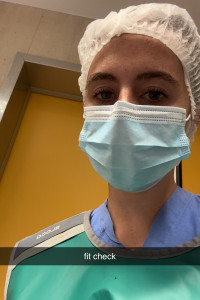 perspective on what it means to be a nurse. I’m planning to apply to nursing school next, work a few years, and then pursue CRNA school. In the meantime, I’m looking for more ways to stay in this environment.
perspective on what it means to be a nurse. I’m planning to apply to nursing school next, work a few years, and then pursue CRNA school. In the meantime, I’m looking for more ways to stay in this environment.
If you’re even a little bit curious about this program: Do it. It excited me, challenged me, and left me more certain than ever that this is exactly what I want to do.
More about Sewanee
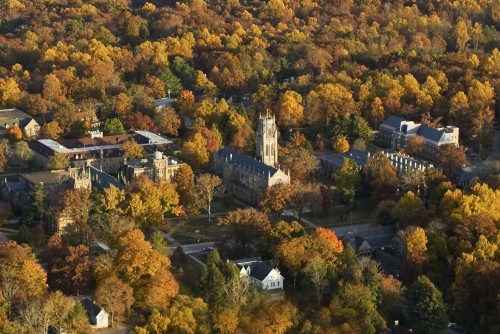
A visit to the Domain (it's what we call our 13,000-acre campus) is the best way to determine if Sewanee is a good fit for you. Once you set foot on campus, spend time with our students and professors, or take a stroll through Abbo's Alley, we are confident that Sewanee will find its way into your heart.

Our small classes mean that your voice will be heard, your contribution will be expected, and your opinion will be listened to (and disagreed with, and challenged, and seen from a different perspective, and pushed in a new direction, and considered—and you know what? Maybe we’re both right. See how it works?).
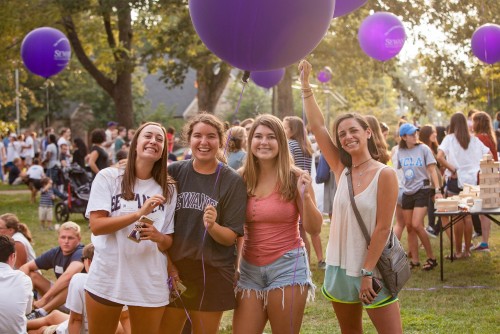
We're a community where everyone has a place and there's a place for everyone. Group study? We'll bring our notes. Rock climbing? We're geared up and ready. Jam session? Sure, we'll play with you. Whatever you want to do, at Sewanee, you'll never have to go it alone. Unless you need your space. Then, we totally get it.
